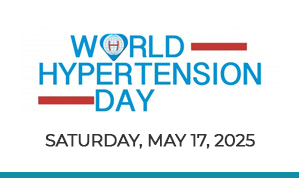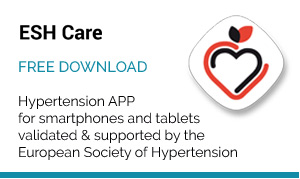Hypertension 2008
Early intervention is critical in young obese individuals because new data suggest that once cardiac remodeling occurs, there is no detectable regression in left ventricular (LV) mass even with weight loss.
Weight gain is associated with pronounced increases in age-related diastolic and systolic pressure rise. This increase in after load accelerates concentric remodeling. Consequently, the gain in weight that often accompanies the aging process may contribute to the promotion of arterial hypertension and LV hypertrophy. However, it is unclear how changes in weight and blood pressure (BP) may affect LV geometry over time.
The study population was derived from the longitudinal, population-based MONICA-KORA Survey. Follow-up data were available for 1,005 individuals originally stratified for the MONICA-KORA Survey from a random sample of German residents in the Augsburg area. Data were analyzed based on quartile calculations of absolute 10-year weight change. Of this group, 573 were normotensive without any need of antihypertensive medication, permitting the investigators to compare the effects of weight and blood pressure over time.
After 10 years, the first quartile was comprised of those individuals with an average 3.5 kg loss of body weight over time as opposed to those in the fourth quartile who experienced a mean increase in body weight of 10.2 kg. Notably, baseline weight was nearly identical for these two groups: 73+/-13 kg in the first quartile and 73+/-12 kg for the fourth quartile.
Changes in systolic and diastolic BP were significantly different in the two groups, with higher readings among those gaining the most weight. Consequently, changes associated with aging and BP were different between the groups, too. The fourth quartile showed the greatest increase in LV wall thickness and LV mass compared to those who lost weight. Consequently, the risk for incident arterial hypertension (OR 2.4; p = 0.004) and LV hypertrophy (OR 3.4; p = 0.002) was significantly higher for those who gained the most weight over time.
The finding that the greatest and most deleterious changes to the heart were seen among those who gained the most weight is unsurprising given the known cardiovascular effects of excess weight gain. As Jan Stritzke, MD, (University of Lübeck, Germany) pointed out, weight loss was associated with a significant deceleration of LV remodeling during aging. Nevertheless, he added, even in the weight loss group there was no regression in left ventricular mass detectable.
Consequently, Dr. Stritzke said, “Early interventions especially in young obese individuals are essential for prevention of premature onset of cardiac remodeling.”





